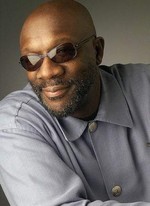- Date Of Birth: August 20, 1942
- Date Of Death: August 10, 2008
- State: North Carolina
Born in Covington, Tennessee, Hayes was raised by his sharecropper grandparents in their shack after his mother had died and his father walked out. When he moved with his grandparents to Memphis, he took jobs as a bus boy and dishwasher to help boost the household’s dire finances, but it was a sign of things to come when he won a talent show singing the Nat King Cole hit Looking Back. “Career change!” recalled Hayes, whose only previous musical experience was singing in church as a boy. “I started pursuing music big time.”
Hayes had become a familiar face around Stax when the writer and producer David Porter suggested they collaborate as songwriters. It was an inspired move, and soon the Porter/Hayes duo (alias the Soul Children) were banging out such classics as Soul Man, When Something Is Wrong With My Baby and Hold On, I’m Coming for Sam & Dave, and the sublime B-A-B-Y for Carla Thomas. Hayes’s work at Stax helped to create the Memphis Sound, which influenced the Beatles, the Rolling Stones and almost everybody who mattered in pop.
Hayes’s Shaft moment duly arrived in 1971, and his double-album soundtrack made him the first African-American to win an Academy award. The Theme from Shaft, with its tense beat, edgy wah-wah guitars and effortlessly hip monologue, became a Grammy-winning chart-topper, made No 4 in the UK and made Hayes a global star. He was the godfather of bling in his gold chains and interplanetary costumes, as well as one of the most imitated musicians on the planet. He was showered with film and television work, scoring the TV show The Men and the movies Tough Guys and Truck Turner (both of which also starred Hayes, who played a bartender in Shaft). His Truck Turner score would be used by Quentin Tarantino in his Kill Bill movies. In 1974 he debuted in the recurring role of Jim Rockford’s fellow ex-con in The Rockford Files.
Hayes released a second successful double-album in 1971, Black Moses, and his US chart-topping Live at the Sahara Tahoe made it three.
In 1975, following a struggle with Stax over royalties, Hayes set up his own Hot Buttered Soul (HBS) label, under the wing of ABC. He scored a big hit with the disco-orientated Chocolate Chip, though follow-ups Disco Connection and Groove-A-Thon proved less commercial. By 1976 he somehow found himself $6m in debt, and was mortified to see his solid gold Cadillac Eldorado go to the tax authorities.
The 1980s proved unrewarding musically, but Hayes compensated by stepping up his acting work. He played the villain in John Carpenter’s Escape from New York, appeared in action romps Counterforce and Dead Aim, and adorned the small screen in The A-Team, Hunter and Miami Vice. In 1988, he appeared in the Keenen Ivory Wayans comedy I’m Gonna Git You, Sucka, a satire of Shaft-style blaxploitation films.
Numerous film parts followed through the 1990s. Hayes now signed a record deal with Columbia. His album U-Turn contained Ike’s Rap, featuring a powerful anti-crack message (“Don’t be a resident of crack city”). He also agreed to lecture in colleges in prisons about the perils of drug addiction.
In 1997, his culinary leanings led to his being cast as the voice of Chef in the animated TV show South Park. Hayes described the character as “a person that speaks his mind; he’s sensitive enough to care for children … And he loves the ladies”. Chocolate Salty Balls (PS I Love You), a song performed by Chef, was his first UK chart-topper. However, he left the series acrimoniously, apparently offended by an episode that satirised Scientology, which he espoused and promoted. South Park’s creators, Trey Parker and Matt Stone, argued that Hayes had not objected to other religions being lampooned, but wanted to apply different standards to Scientology.
Hayes suffered a stroke in 2006, and appeared confused and disorientated on a TV talk show earlier this year. Last Sunday, he was found unconscious by his wife Adjowa at his home near Memphis, apparently having collapsed while using a treadmill. He was pronounced dead at Memphis’s Baptist Memorial hospital, and was thought to have suffered a simultaneous stroke and heart attack. Adjowa was his fourth wife. He fathered 12 children.
Monday August 18, 2008 11 a.m. Hope Presbyterian Church, 8500 Walnut Grove. Memphis TNN
